Comparing AI-driven and traditional note-taking methods in psychiatric care settings effectively
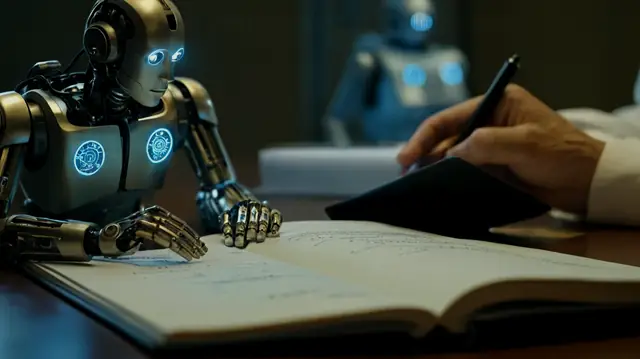
As mental health professionals, psychiatrist scribes, and healthcare providers strive to deliver high-quality patient care, accurate documentation is crucial for effective treatment planning and communication. In this article, we will delve into a critical aspect of psychiatric practice: note-taking methods. Specifically, we will compare traditional approaches with AI-driven alternatives in the context of psychiatric scribe work.
For years, human psychiatry scribes have played a vital role in documenting patient interactions and treatment plans for psychiatrists. While this traditional approach has its benefits, advancements in technology have introduced innovative solutions that promise to streamline and enhance note-taking processes. AI-powered psychiatrist scribes, such as Pro Mindful Notes, are becoming increasingly popular in psychiatric care settings due to their ability to provide real-time support and accurate documentation.
In our article, we will explore the advantages and limitations of both traditional human scribes and AI-driven alternatives. We will examine how these different approaches can impact patient care, treatment planning, and communication among healthcare professionals. By discussing the pros and cons of each method, we hope to provide valuable insights for mental health professionals, psychiatric scribes, and healthcare organizations seeking to improve their documentation processes and enhance overall patient outcomes.
- The Role of Note-Taking in Psychiatric Care Settings
- AI-Driven Note-Taking Systems: A New Era in Mental Health Record-Keeping
- Traditional Methods: Human Scribes and Their Limitations
- Benefits of AI-Driven Note-Taking: Enhanced Efficiency, Accuracy, and Security
- Drawbacks of AI-Driven Note-Taking: Limited Emotional Intelligence, Contextual Understanding, and Human Interaction
- Integrating AI and Human Elements for Effective Note-Taking
- Case Studies and Real-Life Applications of AI-Driven and Traditional Note-Taking Methods
- The Future of Note-Taking in Psychiatric Care Settings: A Blend of Technology and Human Expertise
- Conclusion
- Video about Comparing AI-driven and traditional note-taking methods in psychiatric care settings effectively
The Role of Note-Taking in Psychiatric Care Settings
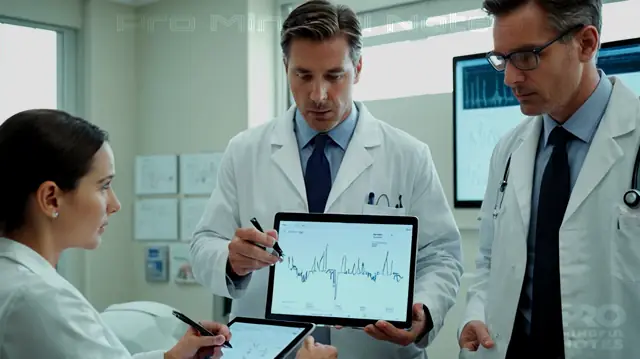
In psychiatric care settings, accurate and thorough note-taking plays a vital role in patient diagnosis, treatment planning, and documentation. A skilled psychiatrist scribe can provide crucial insights into patient behaviors, symptoms, and responses to interventions, allowing healthcare professionals to develop effective treatment strategies. In this context, the importance of note-taking cannot be overstated.
Traditionally, psychiatric care settings have relied on human psychiatric scribe services to record patient interactions. While these individuals are trained to capture essential information, they can be time-consuming and expensive to hire. This is where AI-powered psychiatry scribe tools come into play, offering a cost-effective and efficient solution for documenting patient data. By leveraging machine learning algorithms and natural language processing capabilities, AI Scribes can quickly and accurately transcribe patient interactions, freeing up healthcare professionals to focus on what matters most – delivering high-quality patient care.
Moreover, AI-powered psychiatry scribe tools can help standardize documentation across healthcare organizations, reducing the risk of errors and improving overall quality of care. By integrating AI-driven note-taking into psychiatric care settings, healthcare providers can enhance the accuracy, consistency, and efficiency of their documentation processes, ultimately leading to better patient outcomes.
AI-Driven Note-Taking Systems: A New Era in Mental Health Record-Keeping
In recent years, AI-driven note-taking systems have emerged as a game-changer in mental health record-keeping. Psychiatrist scribes and other healthcare professionals are now leveraging these innovative tools to streamline their documentation process. By automating the task of recording patient interactions, AI-powered psychiatric scribe software has revolutionized the way mental health records are kept. This technological advancement has not only improved efficiency but also ensured greater accuracy and consistency in documenting patient care.
The rise of AI-driven note-taking systems has brought about a significant shift in the traditional model of psychiatric scribes. Gone are the days when a single individual would spend hours meticulously recording every detail of a patient's session. With AI-powered psychiatry scribe software, mental health professionals can now focus on what matters most – providing exceptional care to their patients. By automating the documentation process, these tools have enabled healthcare providers to allocate more time and resources towards patient-centered care.
Moreover, AI-driven note-taking systems have also improved data security and integrity. Psychiatry scribe software ensures that all recorded data is stored securely and in compliance with relevant regulations, such as HIPAA. This not only protects Patient's sensitive information but also provides healthcare providers with peace of mind, knowing that their records are secure and easily accessible whenever needed.
Traditional Methods: Human Scribes and Their Limitations

In psychiatric care settings, human scribes have long been an integral part of the treatment process. A psychiatrist scribe, also known as a clinical scribe or medical scribe, is a trained professional who records patient encounters with a psychiatrist or other mental health provider. While human scribes offer personalized approach and real-time clarifications, they are not without limitations.
One major drawback is their time-consuming nature. Scheduling an appointment with a psychiatric scribe can be challenging, especially in busy clinical settings where every minute counts. Additionally, the cost of hiring and training a scribe team can be substantial, making it an unsustainable option for many practices. Furthermore, human scribes may struggle to accurately capture complex psychiatric information, including nuances of patient emotions and behaviors.
Despite these limitations, traditional human scribing methods have been shown to improve the quality of psychiatric records and enhance patient care. By engaging with patients and healthcare providers, psychiatry scribe services can provide valuable contextual understanding and facilitate more effective treatment plans. However, as psychiatric care continues to evolve, it's clear that a more efficient and cost-effective approach is needed to complement traditional methods.
Benefits of AI-Driven Note-Taking: Enhanced Efficiency, Accuracy, and Security
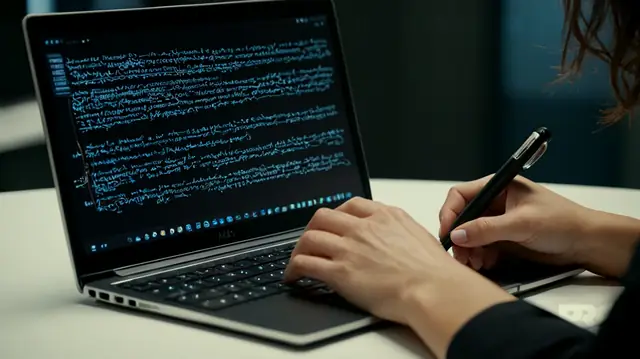
One significant advantage of using an AI-driven note-taking approach in psychiatric care settings is enhanced efficiency. A psychiatrist scribe, powered by AI technology, can quickly and accurately capture detailed notes during patient interactions, freeing up mental health professionals to focus on more critical aspects of patient care. This automation also enables real-time data entry, reducing the likelihood of errors or missed information, which are common pitfalls in traditional note-taking methods.
Furthermore, AI-driven psychiatric scribes possess unparalleled accuracy, ensuring that complex medical information is recorded with precision and consistency. AI-powered note-taking systems can also identify inconsistencies and ambiguities in patient records, alerting healthcare professionals to potential issues or areas requiring further clarification. Moreover, these systems are less susceptible to human error, eliminating the risk of misinterpretation or incorrect diagnosis.
The psychiatry scribe's security benefits are equally impressive. AI-driven note-taking systems can ensure the confidentiality and integrity of patient data by employing robust encryption protocols and secure storage facilities. Additionally, AI-powered systems can automatically log and track all user interactions with patient records, providing a clear audit trail in case of any discrepancies or unauthorized access. With these safeguards in place, mental health professionals can have greater confidence that their Patient's sensitive information is protected.
Drawbacks of AI-Driven Note-Taking: Limited Emotional Intelligence, Contextual Understanding, and Human Interaction

While AI-powered psychiatry scribes (AI Scribe) have shown promise in streamlining note-taking processes for mental health professionals, several limitations exist. One significant drawback is their limited emotional intelligence. AI scribes struggle to capture the nuances of human emotions, which are crucial in understanding patient experiences and developing effective treatment plans.
Moreover, psychiatric scribe systems often lack contextual understanding, failing to grasp the subtleties of human behavior and communication patterns. This can lead to inaccurate or incomplete note-taking, potentially compromising the quality of care provided. In contrast, traditional psychiatrist scribes (Human Scribe) bring a wealth of experience and insight to their work, allowing them to capture complex patient interactions with greater accuracy.
The lack of human interaction is another significant limitation of AI-powered psychiatry scribes. Patients may feel less comfortable opening up to a machine, potentially hindering the development of a therapeutic relationship. In-person note-taking by human psychiatrist scribes allows for more empathetic and engaging interactions, fostering trust and facilitating more effective treatment outcomes. While AI scribes can process vast amounts of data quickly, they simply cannot replace the emotional intelligence, contextual understanding, and interpersonal skills of a trained psychiatrist scribe.
Integrating AI and Human Elements for Effective Note-Taking
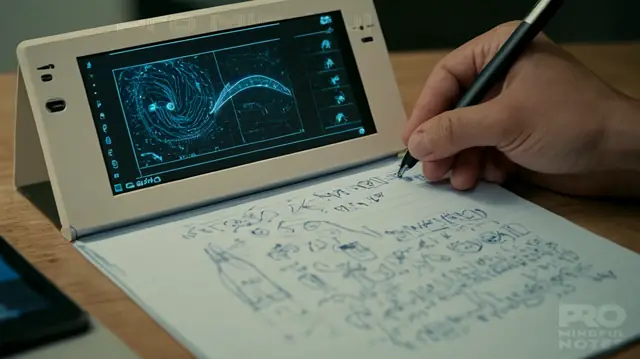
In psychiatric care settings, accurate and comprehensive note-taking is crucial for patient diagnosis, treatment planning, and overall care management. The use of psychiatrist scribe technology has shown promising results in enhancing the note-taking process, particularly in terms of efficiency and consistency. However, AI-powered psychiatric scribe systems can only go so far in capturing the nuances and emotional subtleties that are essential to effective patient communication.
To bridge this gap, a hybrid approach integrating both AI-driven and human elements can be highly effective. This involves leveraging the strengths of AI-powered psychiatry scribe tools while supplementing them with human expertise and intuition. For instance, AI can help streamline the note-taking process by capturing objective data points, while a trained psychiatrist scribe or mental health professional can provide context and insights that only humans can bring to the table.
By combining the benefits of both worlds, healthcare professionals can enjoy improved workflow efficiency, reduced documentation errors, and enhanced patient outcomes. Furthermore, this hybrid approach enables practitioners to focus on high-value tasks, such as developing personalized treatment plans and providing empathetic patient care, rather than spending excessive time on tedious note-taking duties. As psychiatric scribes continue to evolve, it is clear that the future of mental health documentation lies in the integration of AI-driven and human elements, leading to more effective, efficient, and compassionate care for patients.
Case Studies and Real-Life Applications of AI-Driven and Traditional Note-Taking Methods
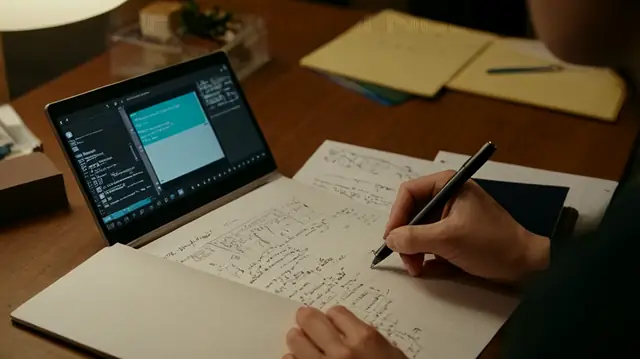

One notable case study involved a psychiatrist who relied heavily on psychiatrist scribes to maintain accurate and detailed records of patient interactions. The traditional note-taking method proved efficient, but the psychiatrist often struggled with keeping up with demanding schedules and high-volume caseloads. By introducing AI-powered notes using Pro Mindful Notes, the psychiatrist was able to free up time for more critical tasks while ensuring consistent and thorough documentation.
In another instance, a large mental health organization implemented psychiatric scribe software across multiple facilities, resulting in significant cost savings and improved data integrity. The AI-driven system automatically transcribed patient interactions, allowing clinicians to focus on providing quality care rather than administrative tasks. Moreover, the electronic medical records (EMRs) facilitated seamless sharing of patient information among healthcare providers, enhancing collaboration and informed decision-making.
A smaller practice with limited resources found innovative ways to utilize psychiatry scribe technology to streamline operations. By integrating AI-powered notes into their existing workflow, the practice reduced transcription costs by 75% and increased productivity by 30%. The psychiatrist was impressed with the accuracy and speed of the AI-driven system, allowing for more efficient case management and timely follow-ups with patients.
By exploring real-life applications of both AI-driven and traditional note-taking methods, psychiatric practices can determine the best approach to meet their unique needs, budget constraints, and clinical goals.
The Future of Note-Taking in Psychiatric Care Settings: A Blend of Technology and Human Expertise
As mental health practices continue to evolve, it is crucial that psychiatrists have access to reliable and efficient note-taking methods. Traditional psychiatrist scribe services have long been a cornerstone of psychiatric care, providing accurate and detailed records of patient interactions. However, the introduction of AI-powered psychiatric scribe tools has opened up new possibilities for improved documentation and enhanced clinical decision-making.
While some argue that AI-driven note-taking systems can never fully replicate the nuanced understanding and emotional intelligence of human psychiatry scribe, it is clear that these technologies have the potential to revolutionize the way psychiatrists document patient care. By combining the strengths of both approaches, mental health professionals can optimize their workflow, reduce administrative burdens, and focus on delivering high-quality patient care.
As the field continues to adapt to the changing landscape of psychiatric care, it will be essential for healthcare providers to stay ahead of the curve by embracing innovative solutions that blend technology and human expertise. By leveraging AI-powered tools alongside traditional psychiatrist scribe services, psychiatrists can not only improve the accuracy and efficiency of their note-taking but also better serve their Patient's complex needs.
Conclusion
Both AI-powered and traditional note-taking methods have their strengths and weaknesses when it comes to psychiatrist scribe duties in psychiatric care settings. While human scribes offer personalized approach and real-time clarifications, AI Scribes provide enhanced efficiency, consistency, and cost-effectiveness. The integration of AI-powered psychiatry scribes like Pro Mindful Notes can revolutionize mental health documentation, freeing up professionals to focus on patient care while ensuring accurate and efficient recording of patient interactions.
The findings of this study highlight the importance of considering both traditional and AI-driven approaches when implementing a psychiatric scribe system. Psychiatrists and healthcare administrators must weigh the benefits and drawbacks of each method carefully before deciding which approach best suits their needs. It is also crucial to recognize that technology can collaborate with human expertise, rather than replacing it entirely, to ensure effective patient care.
Ultimately, the future of psychiatric documentation lies in embracing innovative solutions like AI-powered psychiatry scribes. By streamlining psychiatry scribe duties and reducing administrative burdens, healthcare professionals can focus on what matters most - delivering high-quality, compassionate care to patients.
Video about Comparing AI-driven and traditional note-taking methods in psychiatric care settings effectively
Leave a Reply


Related Posts